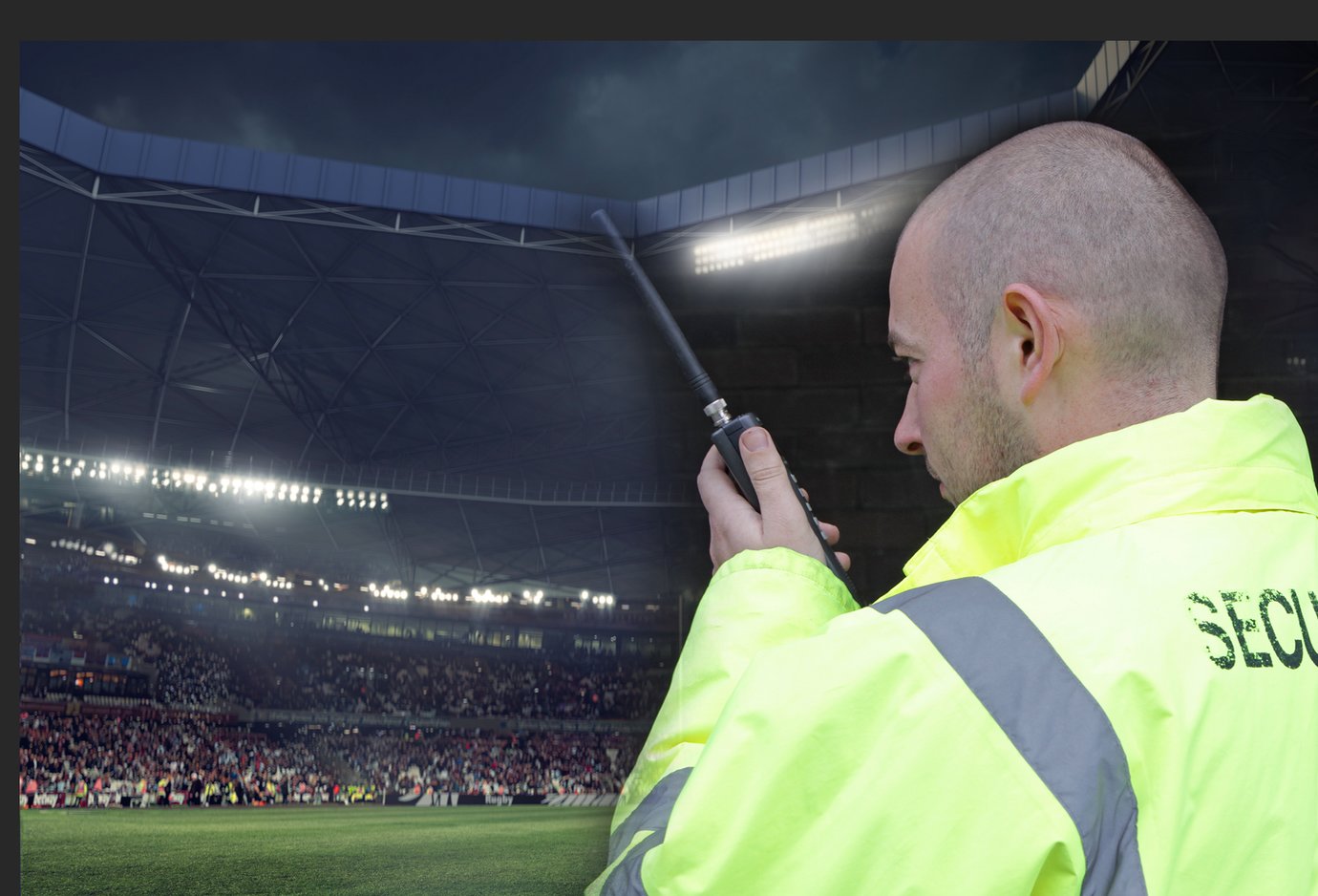Two-way radios and Bodycams keep security guards safe
Security personnel are employed across many sectors to protect anything from critical national infrastructure and high-status individuals to industrial facilities, offices, retail stores, recreation and sporting venues.

The nature of the job means that security personnel face the prospect of injury or potentially life-threatening situations every day. The level of crime has been broadly stable in recent years, according to the Office of National Statistics (ONS), but while its “Crime in England and Wales: year ending March 2020” report estimates a significant 9% reduction in crime overall, offences involving knives or sharp instruments were up by 6%.
Unsurprisingly, ONS figures released in August show total crime dropped sharply by 32% in the COVID-19 lockdown period, while police recorded crime fell by 20% between March and April. However, the latter increased by 12% from April to May, as the easing of lockdown restrictions began.
A number of senior police officers warned at the end of April that the UK is likely to experience a post-lockdown increase in crime and disorder, as social and economic deprivation caused by the coronavirus exacerbate the effects of years of austerity.
Security guards face these challenges along with the additional need to enforce social distancing without antagonising the public, as well as a potential increase in crime due to mask wearing. Lone worker roles will increase as companies lay off staff and others continue to work from home.
It is important, therefore, that every security guard is properly equipped and has the right level of protection. These two requirements are best fulfilled by robust and reliable professional mobile two-way radios supporting instant push-to-talk (PTT) communications with individual, group and broadcast voice services.
Two-way radios can save the life of security personnel or enable a user to save the lives of others by connecting them immediately to colleagues, controllers or first responders and enabling them to take part in a co-ordinated response to any incident.
Two-way radios double-up as a safety device as they offer priority access emergency calling, Lone Worker protection alarms, Man Down sensor alarms and GPS location-based features capable of transmitting an alert to an alarm-receiving or dispatch centre.
All of these features help protect security guards and other workers if they have an accident in an isolated environment or encounter trouble, such as a confrontation with a member of the public or a criminal.
Hytera offers a wide range of Digital Mobile Radio (DMR) handsets to suit all budgets, including small, slim covert radios and intrinsically safe radios, along with Push-to-Talk over Cellular (PoC) devices. A DMR solution may require investment in repeaters depending on the number of radio users and area of coverage.
Hytera also offers Body worn cameras (bodycams) for additional protection. Bodycams can fill in surveillance gaps in fixed CCTV coverage, as well as recording audio. It can verify the security guard’s version of events to support or disprove the verbal testimonies of suspects, victims, and eyewitnesses.
Clearly displayed Bodycams can also help to deter theft and violence in the first place. Aggressive people often calm down if they know they are being filmed, which helps to reduce confrontations and protect security personnel from assault.
The use of PTT radios and Bodycams by security guards can have an indirect impact on cost savings by helping to reduce theft and productivity lost to downtime caused by poor communication solutions. A properly equipped security guard provides a better and safer customer experience, especially in retail and other open environments, and delivers better protection for staff, customers, and the public.
15 September 2020

